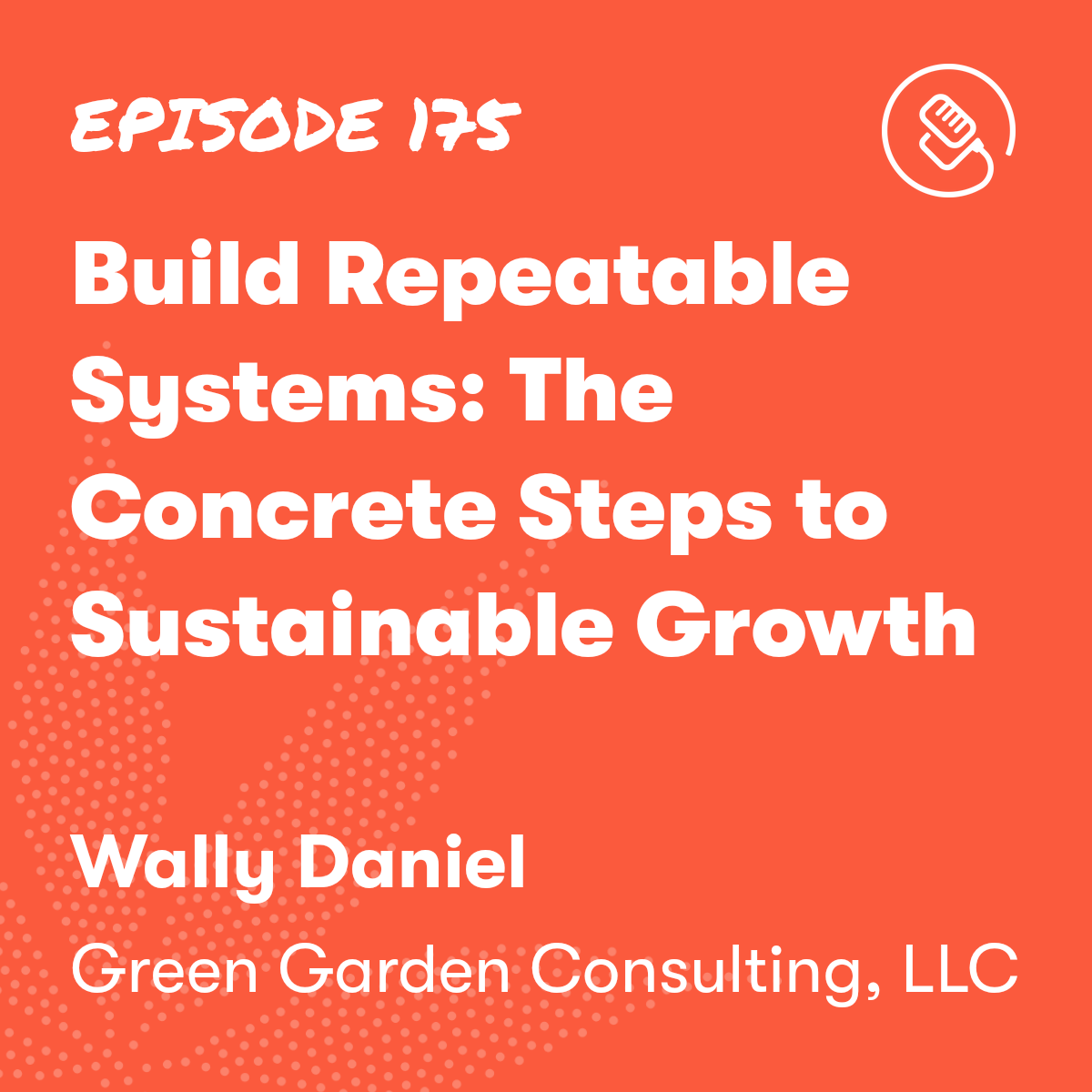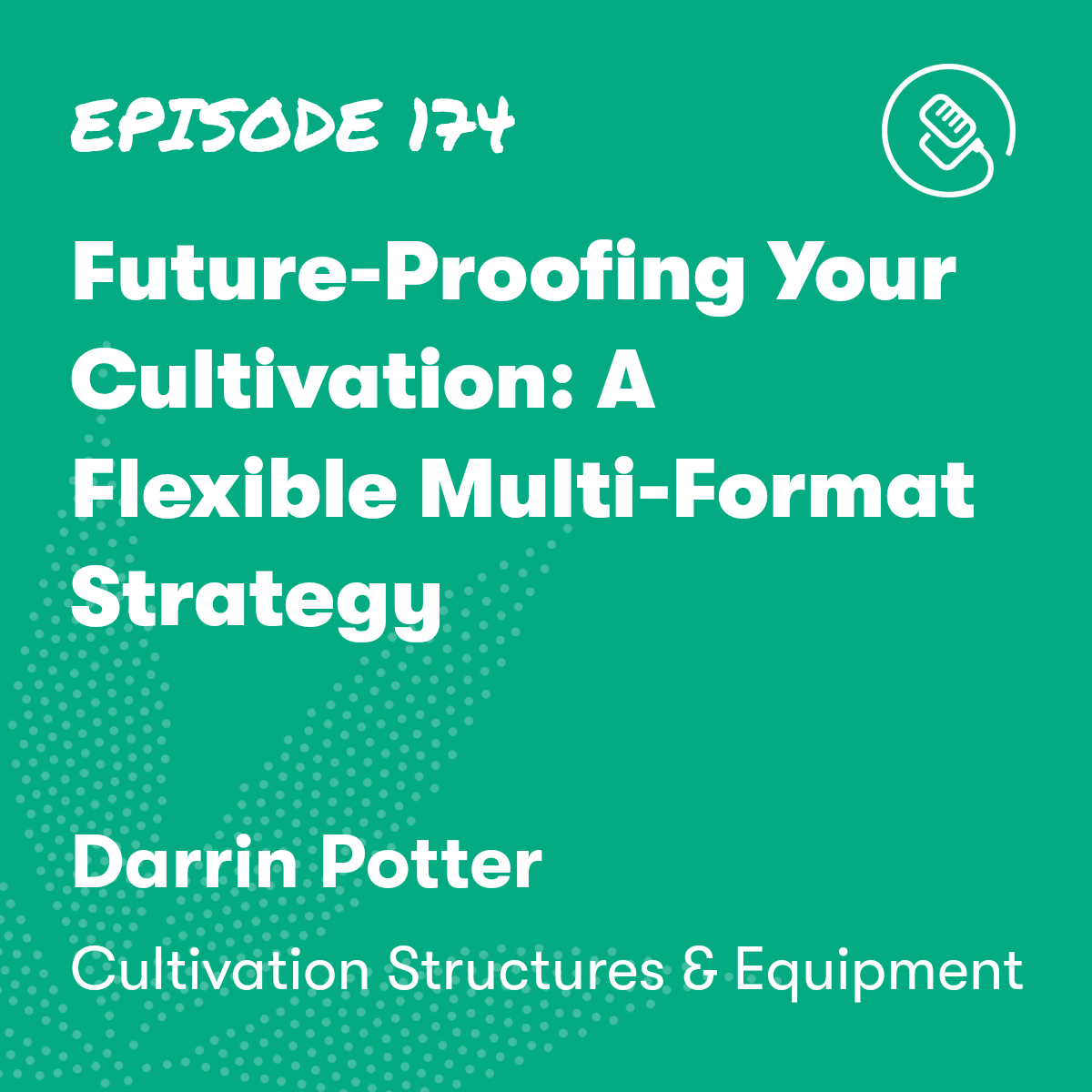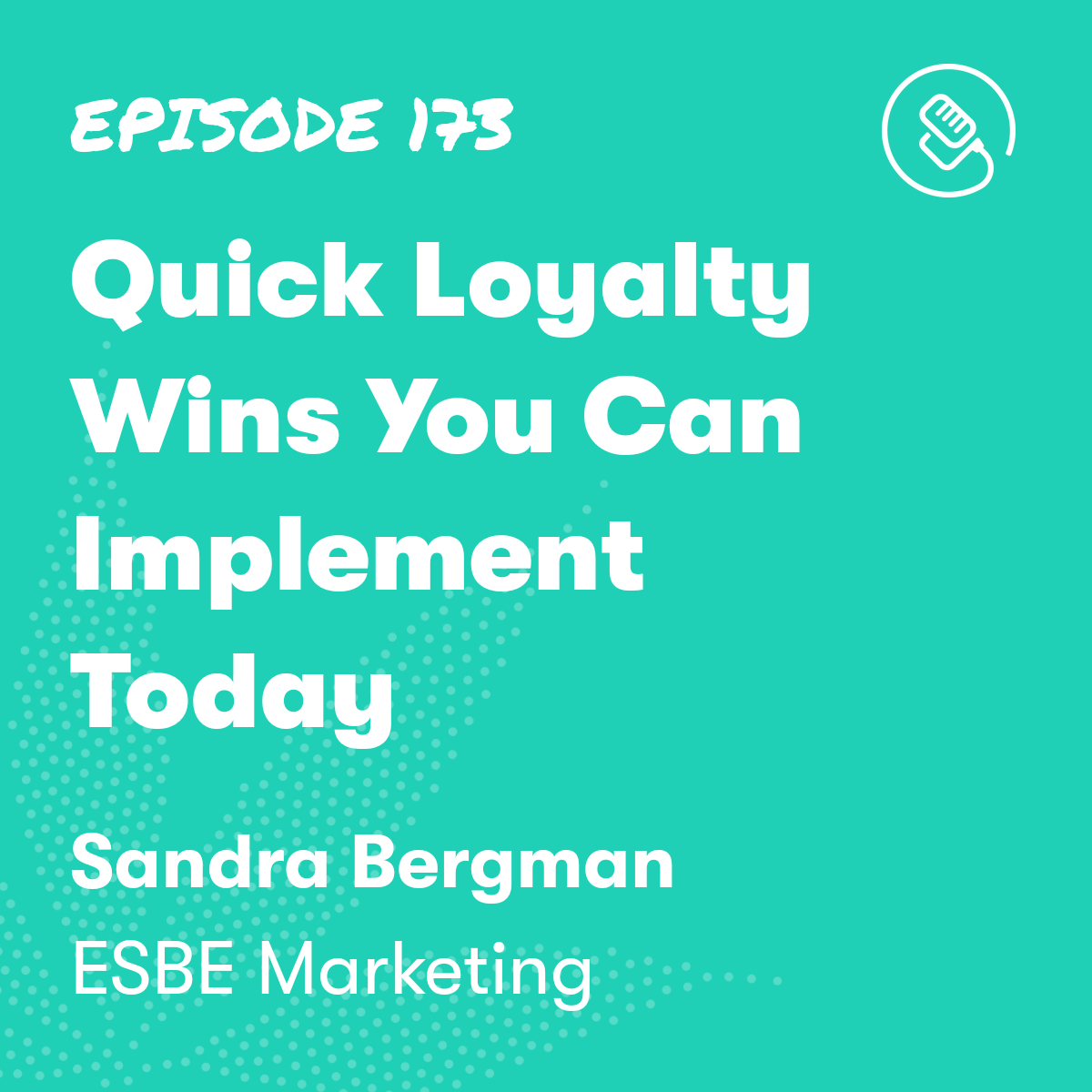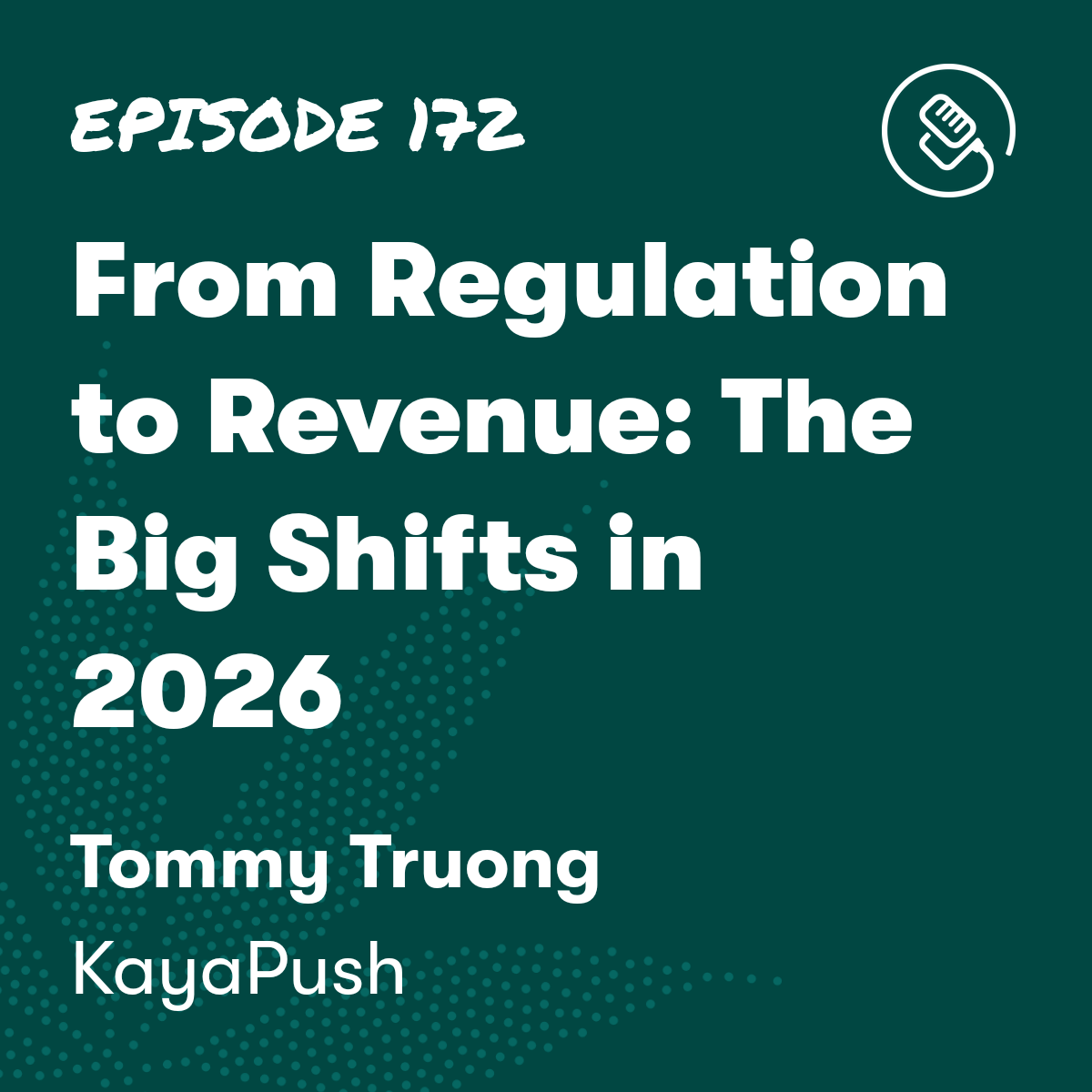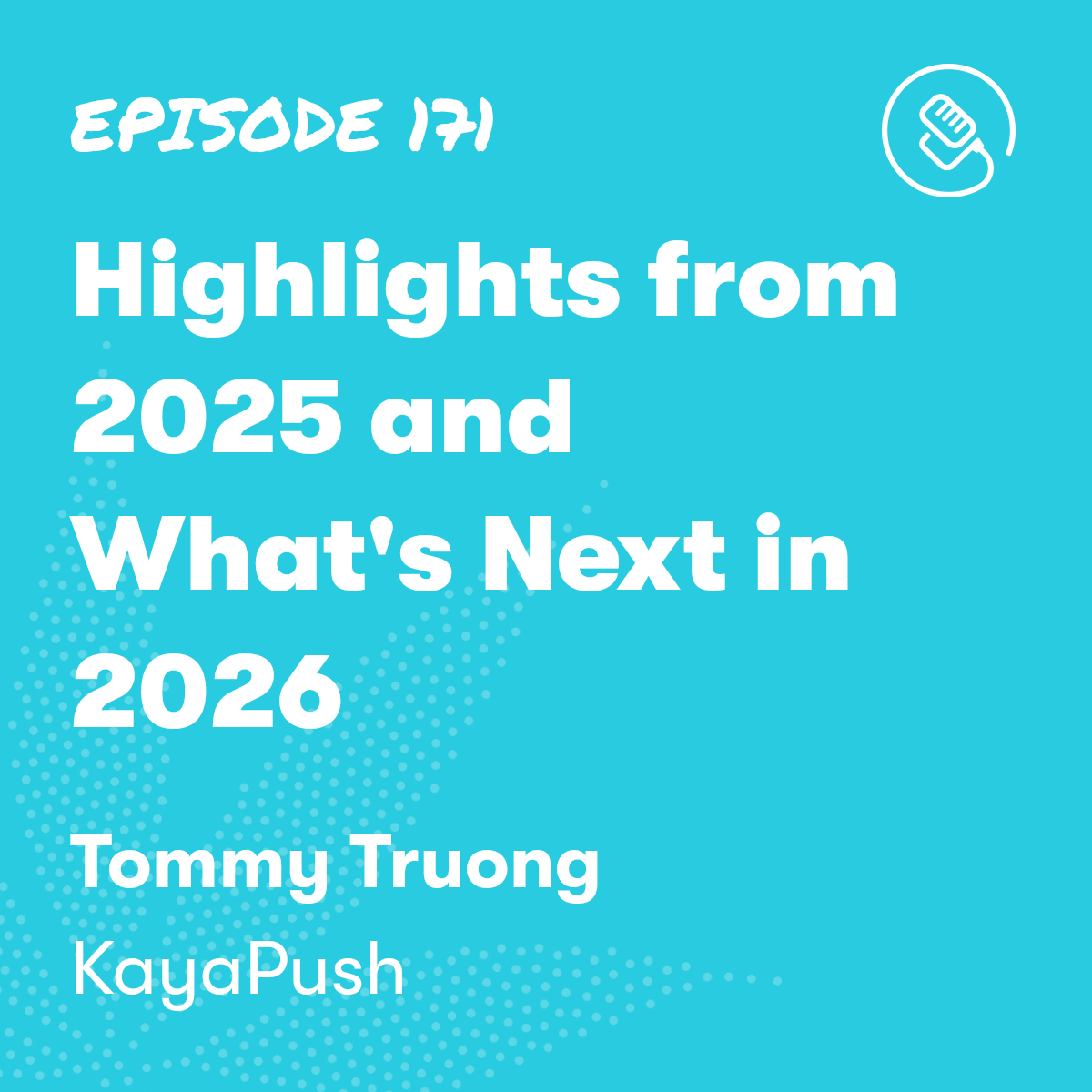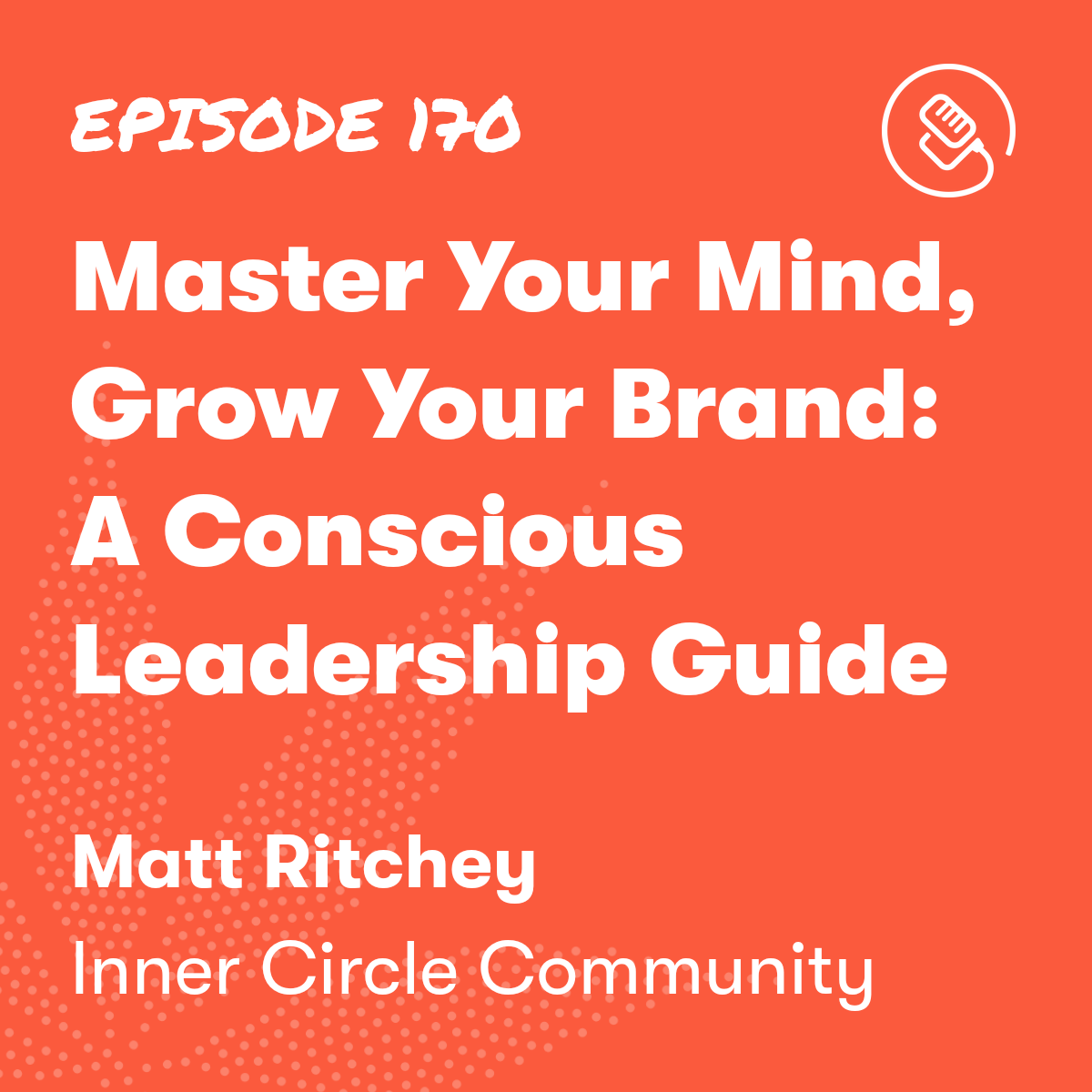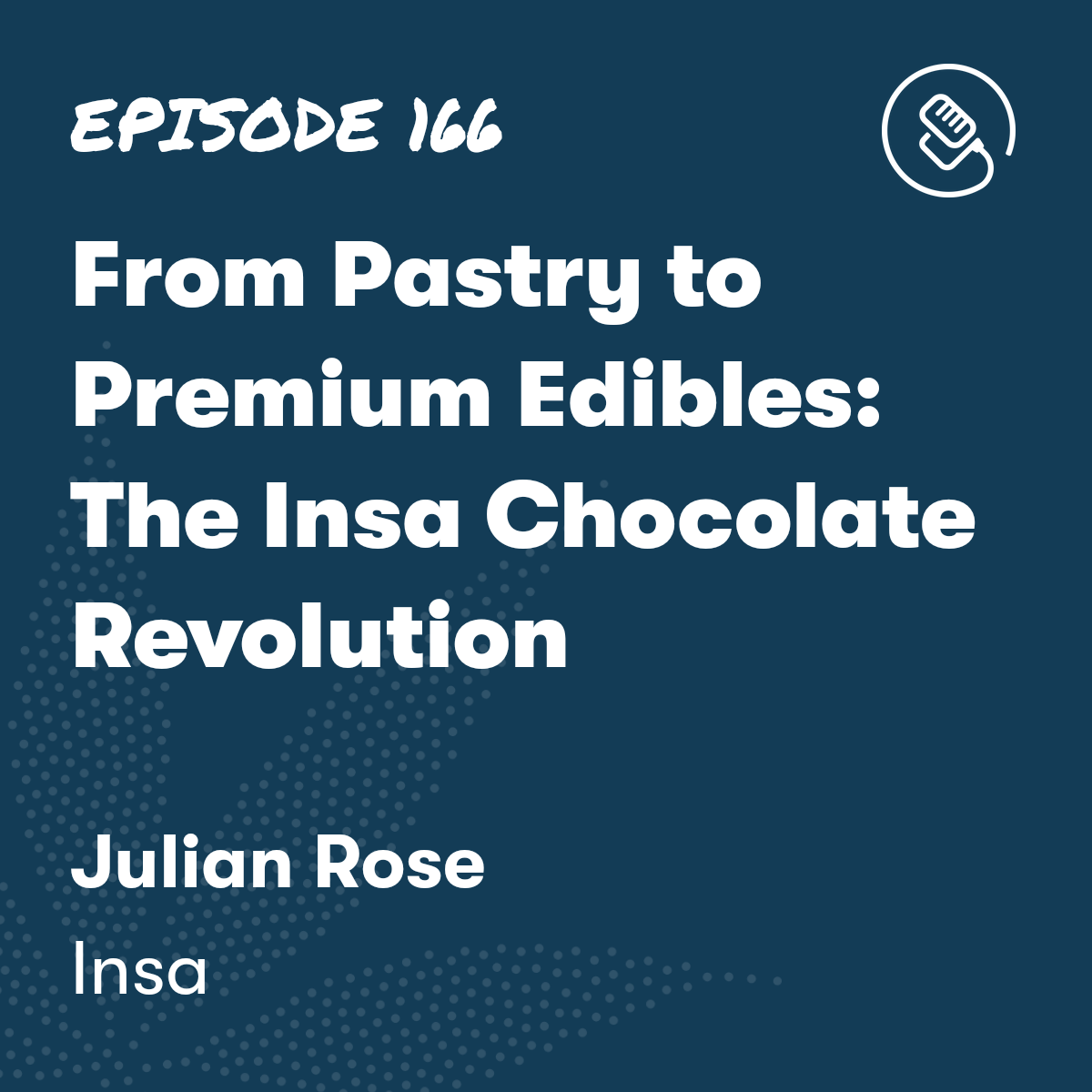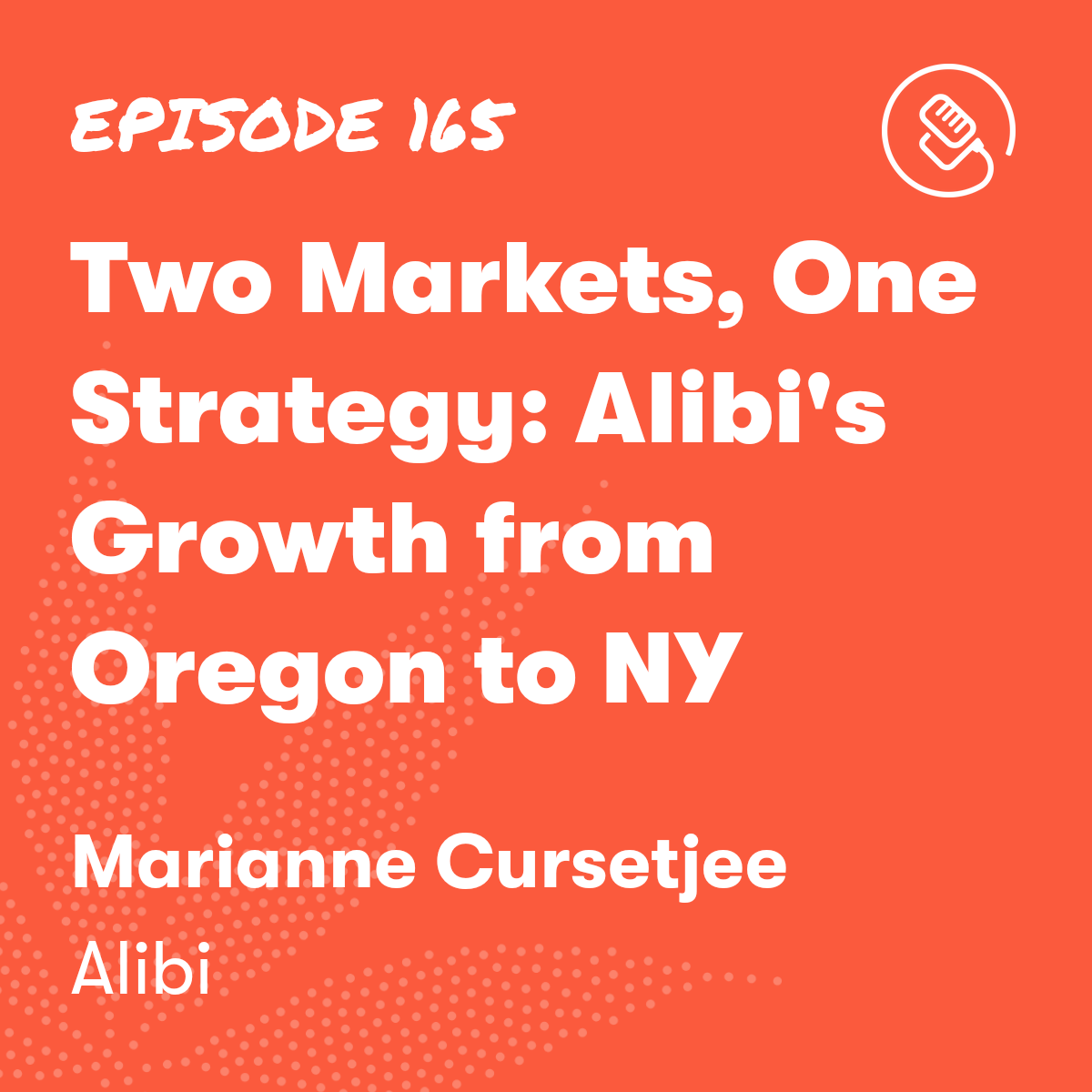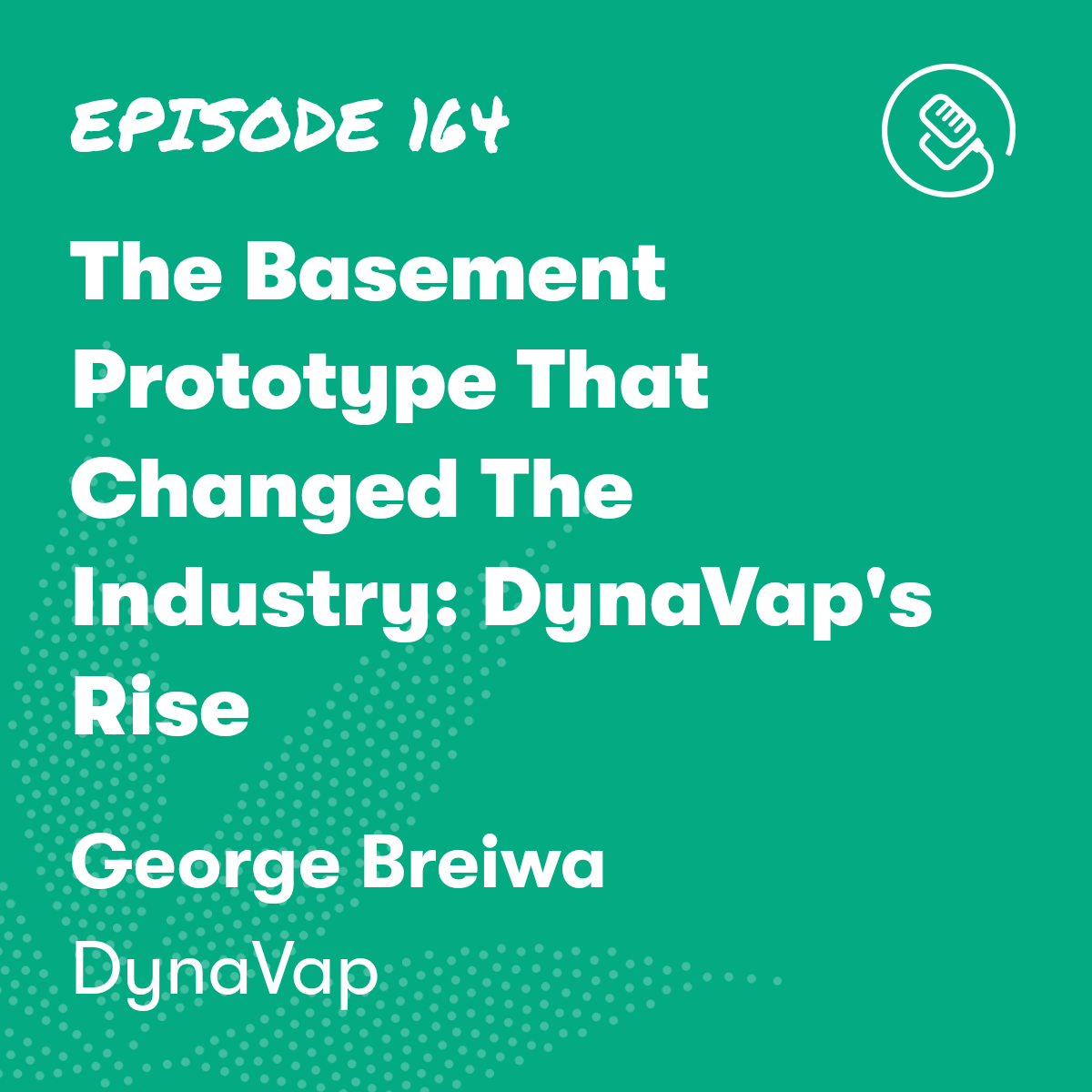

Finding Happiness in the CBD Industry with Weiwei Fellman
Episode Description

Episode Transcript
Tom Mulhern: One of the best things about going to conferences and conventions like MJ BizCon is meeting amazing people, running into complete strangers who become fast friends. And when I was at MjBizCon. I met an amazing entrepreneur named Weiwei Fellman, and she is from Fargo, North Dakota. And she has a CBD company called Koda Botanics.
And I met Weiwei when we were just waiting outside of the podcast recording area. And I started talking to her and she had an amazing story and I said, We're gonna go in the studio, we're gonna record. I wanna share your experience of launching a CBD business in such a difficult area as Fargo. And so this is my conversation.
I had no preparation for this. I just jumped in and just went wherever Weiwei led me. And you know, we had a fantastic conversation. So let's jump right into the show, my conversation with Weiwei Fellman from Koda Botana.
Weiwei Fellman: My name is Weiwei Fellman. I was born and raised in China. I moved to Fargo from Beijing Fargo, North Dakota from Beijing in 2009. Because I met my husband in Beijing in 2004. We both worked there. He's from Fargo. We were introduced by a Canadian gentleman, who's my dear friend? So that's how I landed in Fargo.
In 2019, I launched my own Hemp CBD business called Kota Botanics because I was suffering ptsd, high anxiety. I just needed some relief. And then CBD just start bubbling in the news as it's anti-anxiety, the ptsd. So, started. Initially doing some research and bought my first product. Used it, loved it.
And then I realized in our community, more people need that help. So I started brick and mortar in Fargo right before pandemic happened. And now not only we survive the pandemic, we also thriving. Just open our second location in Minneapolis area. Okay. We are the largest premier Hemp CBD distributor.
Retailer and wholesaler. In Midwest, we carry 15 brands, 148 different types of products. So we're pretty big.
Tom Mulhern: Now being in North Dakota, yes. You guys just had those votes, the midterm elections. I know. I was like, come on North Dakota. Oh my gosh, I'll like us. I don't, nobody from, I'm from Canada, so I was like, you're basically Canada.
So how did it feel being a retailer in North Dakota? Yes. Knowing that. Said no.
Weiwei Fellman: I'm all for it. You know, for me, cannabis is medicine. Just like CBD. We have a lot of users, customers, our senior citizens, they're just so struggling with pain, you know, a lot of issues. So this is a really a plant medicine. For me, I said we should vote for that. But then I did tell them like it'll be a miracle if that, if the state really passed it.
However, I can tell you is this time we had more people, more voters actually said yes than the last time we tried. So hopefully, Because this time I think 45% said yay. So hopefully next term we'll have like 55% say yay. Or even 51%. That'd be great. So for me, I don't see cannabis as a threat because I do believe there are a lot of people use CBD, they're not cannabis user.
They don't wanna get euphoria the high, but they just wanted the relief for helping them managing stress. Promoting sleep and just overall, you know, holistic health. I think whoever is a CBD user, they will continue to be a CBD user. So we're, we're really not competing with cannabis. No. You know, we're part of cannabis.
And we will always have a market for it. Have a demand for it. So that's why for us, like we don't call us a dispensary, we are really a CBD lifestyle Boutique. Okay. If you look at us online, we have beautiful stores. That's how I, when I initially started it. Cause I wanted to create very welcoming environment, comfortable for customers to come in to shop.
Our lot of our customers are senior citizens, okay? They don't like to be seeing go to CBD, like a vape shop or cigarette store to buy CBD. Which why we created that environment very warm for them and really spent a lot of time educating them. It's a lifestyle.
Tom Mulhern: I'm interested, you know, coming from an Asian culture, so I work for a company Kaya Push, and our company is own like it started by three friends, three high school friends in Vancouver.
Yeah. That all have Asian heritage. And I know that there's a huge stigma in the Asian community. Absolutely. And there's a huge need for Asian owned businesses. Yes. Like looking at some of the social equity stuff, you know, obviously there's a large percentage of white owned businesses and then we mm-hmm. black and brown owned businesses. Mm-hmm. Asian community actually is 2% of cannabis owned businesses. Mm-hmm. Are Asian heritage. How have you kind of worked to overcome that stigma?
Weiwei Fellman: Great question. Right now, because where I am it, we are, our population is really dominated by Caucasian. Mm-hmm. .. So that's my reality.
So right now we're, our main focus is to servicing those clients. But we do have growing Asian population in our area and Midwest, North Dakota Minnesota. So my plans next year is to first of all start educating part in the Chinese community. Yeah, because I'm bilingual, so I can explain to them what is this?
How does it work for us? By hosting some events, inviting over and educating them in our native language to put easier for them to understand. And also, we do have plans to translate our e-commerce side to have a, to add the separate side to, you know, in Chinese language. So that they can read that and really understand what this is about.
It is a long process. It's not gonna be overnight. Everybody is like, oh yeah, now we are happy, you know, to support a CBD business. Cause. Stigmatized deeply. I have to do a lot of education, put myself out there and just really let them understand. It is a plant-based medicine, you know, you don't have to be scared.
It's legal, you're not gonna be arrested. And also I'm actually partnering with Asian Cannabis Roundtable, which is the nonprofit organization based in New York City. We are planning to form that association to really hopefully get more attention from our Asian economy, like a business community.
And with that support, you know, As Asian, we're not only just own restaurants, right? Yeah. We own dispensaries. We also own CBD business in Fargo which is, yeah. It's fascinating to see that transition.
Tom Mulhern: So how did you grow that business from that idea? You know, in such a place as Fargo, North Dakota like
Weiwei Fellman: Yes. Yes. So initially I know exactly what my vision was based on my shopping experience with other CBD business in town.
So I know absolutely I need to have a brick and mortar. And my husband was very against it cuz he thought it, the overhead cost was way, way too much. He was like, you should just do online. But for me, I was like, as a CBD consumer or buyer, I need to go see it. Yeah. I need to go talk to the people who work at the store.
So help me find the right product that will work for me. And on top of that, I need to sample the product. I cannot go to somewhere trying to buy a oil tincture and you tell me, oh, it tastes like passion fruit or passion flower. I don't know what it tastes like that's what we have been very proud of is we pulled out samples for every product.
So if you wanna try the oil tinctures, you can try a little bit, try gummies, try beauty products even. Just, you know, everything you wanna try, you try it. And on top of that, we also launch our e-commerce site at the same time. Okay. Which turn out is a great strategy because we open our shop in December 2019.
Pandemic hit and literally there's no cars driving on the business street where we are at. But people were able to order online. So I literally start picking up orders and go do delivery. That's just a really right strategy we put in place because I didn't know there would be a pandemic.
Yeah. But I just wanna be, I wanted to ease the, you know, give the convenience to our customers. If they already shopped with us, they just wanna order online. And then they can come pick up, pick it up in our store. But because of pandemic, so we is like, don't worry, we'll deliver to you for free. So I did a lot of delivery during that time.
Tom Mulhern: How did you manage all that? Like from delivery to e-commerce? Like what did you use to do that? Kind of put together pieces?
Weiwei Fellman: You know, you learn from your every step you took, right? Yeah. We're a small business.
We don't have a lot of marketing budget or operational budget. So you really just start from the very basic, have a e-commerce shop work with the payment processor, and then, you know, I literally wear every single hat as all the entrepreneurs do.
I'm the founder, I'm the delivery gal, I'm the customer service. I am the marketing manager. You know, I'm the, our sales, I mean I, yeah. Do it all but down the road we start, we just hired three more people to our team now. Okay. So, which I'm super proud of.
At the end of the day, I wanted to grow, right? And I need talented people. And for me, I told my team, you know, I want you guys to be proud of what you do here, because we're not sales, we're consultants. We're helping people to really understand the plant and also help them to get to their better place. So Kota, Kota Botanics, that's my business name. Kota is not an English word.
But in Japanese it means longevity and happiness, which is what I fully believe that with the help of the cannabis or hemp, you know, people will be, get more happiness on that because when you struggle with anxiety or pain, you cannot relax. You know, your life quality is just not right there. So I do believe there is a way, this is just one of the way for people to get relief, right?
You still gotta see your mental health counselor if you need to. It's just an extra tool for you to feel better every day. So, that's what we are very proud of, you know, provide really great products, huge selection of products, and also the top-notch services to our customers. That's why when you look at online, we get most five star review.
Tom Mulhern: Oh, that's so cool. And I'm so like, inspired by you as like a strong woman entrepreneur. Like, you know, I say you go for it. Thank you, Tom. I love that. I love hearing your story. Thank you. What have you found as a big roadblock that you found a way to kind of overcome?
Weiwei Fellman: Wow, that's a such a great question because I literally, yesterday I met so many women founders, and in this business we all share the same level of pain. Yeah. You know, you are facing different regulations, different levels of regulations from the federal government to.
State government, city government. On top of that, you cannot banking issues, which for us is easier than cannabis because we do hemp. But still, you know, you, you are walk, walking on the thin ice. , you know, you have to really behave yourself not to make any claims on any sort of platform. And I mean, it's just uh, because it's such a stigmatized area, the stigma really.
Industry in a lot of facing a lot of challenges. Yeah. You know, when we go out, try to network with people the second deal brought us I'm a hemp business or CBD business. You immediately can tell their faces go, okay, you know, should I continue the conversation with you or not? You know, that's why, for me, I think I treat it as an opportunity. . If you don't know about CBD, oh, let me talk to you about it. Yeah, because I know everything about it. And then after a conversation they felt like, oh wow, that's actually very interesting. Yeah, let's have more talks. You know, of course for us, small business, we always struggle with.
But then just really, you have to have the tenacity and patience and just really stay positive. Because we do have frustrating moments. I'm not gonna lie. It's not every day is glamorous, you know? But when that happened, I always remember my why. Why did I start, why'd I start this business? Is because I wanted to help people. I helped myself with the CBD and I saw the help that our customers got from that.
So that's just so rewarding. , no matter how challenging we're facing, I know I'm helping people and I know they trust me helping them.
Tom Mulhern: It's so interesting that you've built this company out of, you know nothing, and you now have a business that's helping you with your, you know, your family.
Yes. Provid an income. Yeah. You're also providing jobs, you're providing education to the people of Fargo, North Dakota, that obviously they still need a lot of education. Normalization and all of that. And I think that's what's gonna change, shift that paradigm
Weiwei Fellman: I do believe that, you know, in this business, whether you're hemp or you're a cannabis, we are all in this together.
That's why I feel like so empowered when I come to event like this, meet similar minded people like yourself and other lady founders and they just really know. We're in this together, get rid of the stigma of the about cannabis or hemp and really provide a better life quality to people.
It's nothing evil about that and we should not be, we should not fear to talk about it cuz , I think the most frustrating thing is like you, you fear what you don't know. Exactly.
Tom Mulhern: That's, that was like the phrase that was just in my head is that that fear comes from not under, not knowing, not understanding.
Mm-hmm. .. And I know I have people in my family who don't understand what I do, and you probably as well a
Weiwei Fellman: family that's like my father-in-law who's a retired dentist in Fargo. So he's very well connected. You know, when I first brought this idea to my family and say, Hey, I'm starting a CBD business. I remember the first thing he said to me, not, congratulations, I'm so proud of you, but is that legal?
Are you ? What are you doing with your life? What are you, what are you thinking? I would not ruin your reputation. This is totally legal. So I had to explain to him, but now he's transition into my, one of my biggest advocates because Oh, that's okay. He suffered strokes six years ago and he, I give him a CBD gummy.
He felt a difference and started using tinctures, topicals, and he tell, told all his friends to come to see me . Yeah. So that's really really nice of him doing that. I
Tom Mulhern: think that's what changes people's minds Yes. Is when they experience something, when they experience that the benefits of CBD or cannabis or thc, it removes that fear.
I think what you're doing is so important. Thank you. You know, you've been through the process. Yes. What advice would you give to someone that's like, okay maybe I wanna start a business similar to what you've done?
Weiwei Fellman: I would say number one advice I will give to folks out there who wanna start your own business is understand who your customers are. Mm. I mean, yes, we wanna sell CBD to everybody. Right? But you have to have a very strong, supportive group for you. Yeah. For us, our primary clients are senior citizen.
And then moms like myself in their late thirties dealing with a lot of stress. So those are our customers. For us, we know senior citizen love to shop in person. Yeah. So that's why we started the, brick and mortar and also provide the e-commerce just to give them another platform to shop with. But definitely understand your clientele first.
It's all about the connection. A lot of people, you know, media including they were saying retail is dying. I disagree. I truly believe that retail has become so specific, you know, if you are in a niche business like this people, the retail is gonna be there.
There is only so much you can do through online business. But when you have a brick and mortar representation that's your reputation. Whatever you're saying out there, you're selling out there, it's you. So you know, people will trust you. And they will always come back to you and bring their friends, bring their families to see you.
So that's why we're saying, that's why I'm so glad that I went against my husband's advice. Just opened up brick and mortar. So,
Tom Mulhern: So how can people find out about you? Like maybe they're sitting in Fargo, North Dakota looking for CBD or, or people that are inspired and they're like, Hey, this is a boss lady.
I gotta support what she's doing.
Weiwei Fellman: Thank you. Yeah. So we have. They, people can find us online, Kota Botanics.com or they can follow us on Instagram, Facebook, just search Kota Botanics.
And also they can email us at info@kotabotanics.com if they wanted to have a further conversation.
Happy to help. Whatever I can. Just to. Keep the industry revolution going. Keep marching .
Tom Mulhern: Well, thank you so much for jumping in here. This was, we're like out side. Let's chat.
Weiwei Fellman: Thank you for letting me grabbing you. You're like, who is this lady?
Tom Mulhern: Oh no. It's so good. It was so great to meet you and hear your story.
Thank you. I'd encourage everyone to go check out Kota Botanicss Thank you. And we'll have links in the bios so people
can connect with you.
Weiwei Fellman: Absolutely. Thank you so much.
Tom Mulhern: You know, to think of the struggle that, uh, Weiwei has gone through to launch the store is really compelling. Moving from China and overcoming some of those stigmas around cannabis and to be where she now has this amazing in-store experience for her customers that are walking in.
And she's trying to normalize the shopping experience, especially for some of her elderly customers. That was a huge encouragement to me. As I think through, you know, the design and the experience that customers are having when they walk into a dispensary, you need to reflect the customers that are walking in.
Your brand, your, your feel of your store needs to reflect who's coming there and who's shopping and, and make it normal for them to walk in.
And so again, I want to thank Weiwei and the crew over at Kota Botanics. Make sure you check out their website. And if you live in Fargo, North Dakota, then you gotta go over and check out her store or you can shop online if you live in the area.
Speaking of online, make sure you go and head over to kayacast.fm to check out episodes of the show, you know, to check out, uh, what's happening and where we're headed in 2023, we've got amazing, amazing interviews coming out in the new year, and I cannot wait to release some of the conversations that I've had with cannabis influencers, cannabis business owners, and you know, it's been an amazing few months that we've been, doing the podcast here, but I'm so excited for what's coming next.
If you have a chance, also go and leave a review for the podcast because that really helps us know what we're doing right, where we need to pivot, and I'm so grateful for the opportunity to share these stories every single week.
